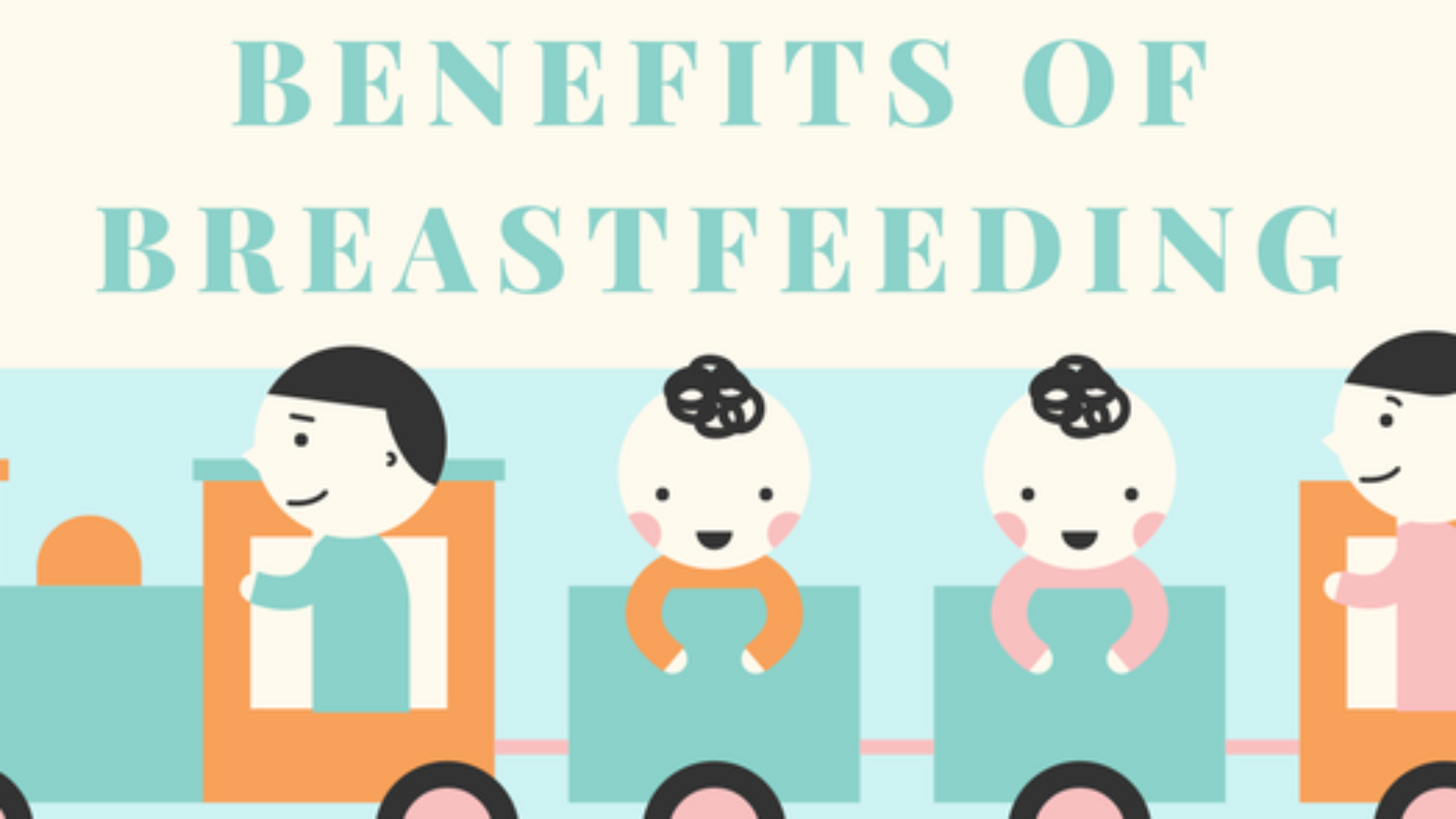With rare exceptions, breast milk is the preferred feeding for infants and confers unique benefits.
Breastfed babies (for at least six months) may be at reduced risk for many acute and chronic diseases, including gastrointestinal tract infection (like diarrhea), irritable bowel syndrome, respiratory tract infections (like a cold), urinary tract infections, otitis media (ear infections), and allergic reactions (like atopic dermatitis and asthma). Breastfeeding also has been shown to reduce pain in infants undergoing painful procedures.
Exclusive breastfeeding has been shown to help infants recover faster from major illnesses such as pneumonia, with shorter hospital stays and decreased need of antibiotic changes than formula-fed babies.
The effect of breastfeeding in protecting against infection is well established. Infants who were fully breastfed for six months or more seem to have higher mental development when compared with infants who were never breastfed. Some studies show that the effects of breastfeeding may carry over and also protect young children and adolescents from becoming overweight, having elevated cholesterol levels, and developing diabetes or prediabetes. Either exclusive breastfeeding for four months or breastfeeding with some formula supplementation for six months reduces risk of being overweight. Breastfeeding may also impact adult health. In some studies, breastfed infants were more likely to have good cholesterol levels and normal weight as adults than those who were not breastfed.
- Milk has biologic specificity, meaning that every species of animal who breastfeeds their babies makes a milk that is unique for the young of that species.
- The amounts of nutrients change to match your baby’s rapidly changing needs.
- The fat content increases during a feeding so that the baby gets the right amount of fat. Human milk contains the right kinds of fats along with an enzyme (lipase) that helps digest the fat.
- Cholesterol is high in human milk, lower in cow’s milk, and very low in formulas. Cholesterol promotes brain growth and provides basic components of hormones, vitamin D, and intestinal bile.
- Milk (cow’s, formula, and human) contains two main proteins: whey and casein. Whey is easier for humans to digest and is found in higher concentrations in human milk.
- At around 6 months of age, the baby’s intestines mature and become less open to proteins that may harm the body as allergenic proteins (allergens). Giving only human milk until the intestines mature is the best way to keep potentially allergy-causing proteins out of baby’s blood.
- Human milk includes helpful proteins not naturally found in milk made by cows or companies.
- Human milk is fresh and contains more lactose (sugar) than cow’s milk. Formulas add sucrose or glucose (other types of sugars).
- Vitamins and minerals have a higher bioavailability in human milk. In other words, the body uses most of what is in the milk. There is very little waste.
- The germs in the baby’s environment, to which the mother has been exposed, cause the mother to produce antibodies to that germ, which are passed on to the breastfeeding infant.
- Breastfeeding relaxes mother and baby.
- Women who breastfeed have a lower incidence of breast cancer.
- Women who breastfeed have benefits to their health even later in life. Some studies show that women who breastfed their infants longer than six months were less likely to develop high blood pressure, diabetes, high cholesterol, and heart disease.
- Women who have a family history of breast cancer have a lower risk of getting breast cancer before menopause if they breastfeed.
- Breastfeeding is less expensive.
- Women who breastfeed lose the weight that they gained during pregnancy faster than women who do not breastfeed.
- Type1 diabetes and breastfeeding: If you have a family history of type1 diabetes, breastfeeding may help reduce your child’s risk of developing type 1 diabetes. Because babies can digest human milk proteins better than intact cow or soy milk proteins they are less likely to develop an autoimmune response which can trigger the gene to cause diabetes. Those “foreign” proteins can cause an immune response which can lead to the destruction of insulin-producing cells.



Add a Comment